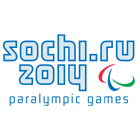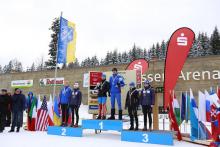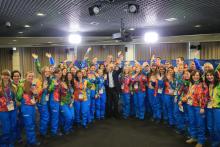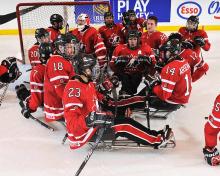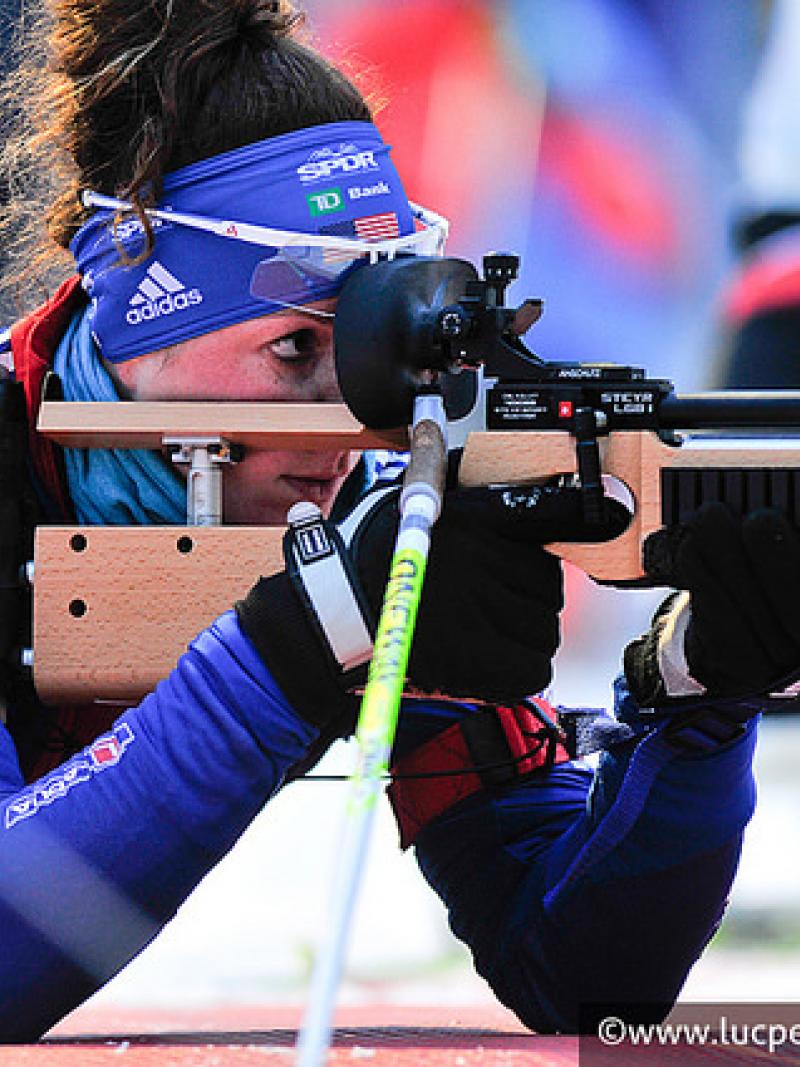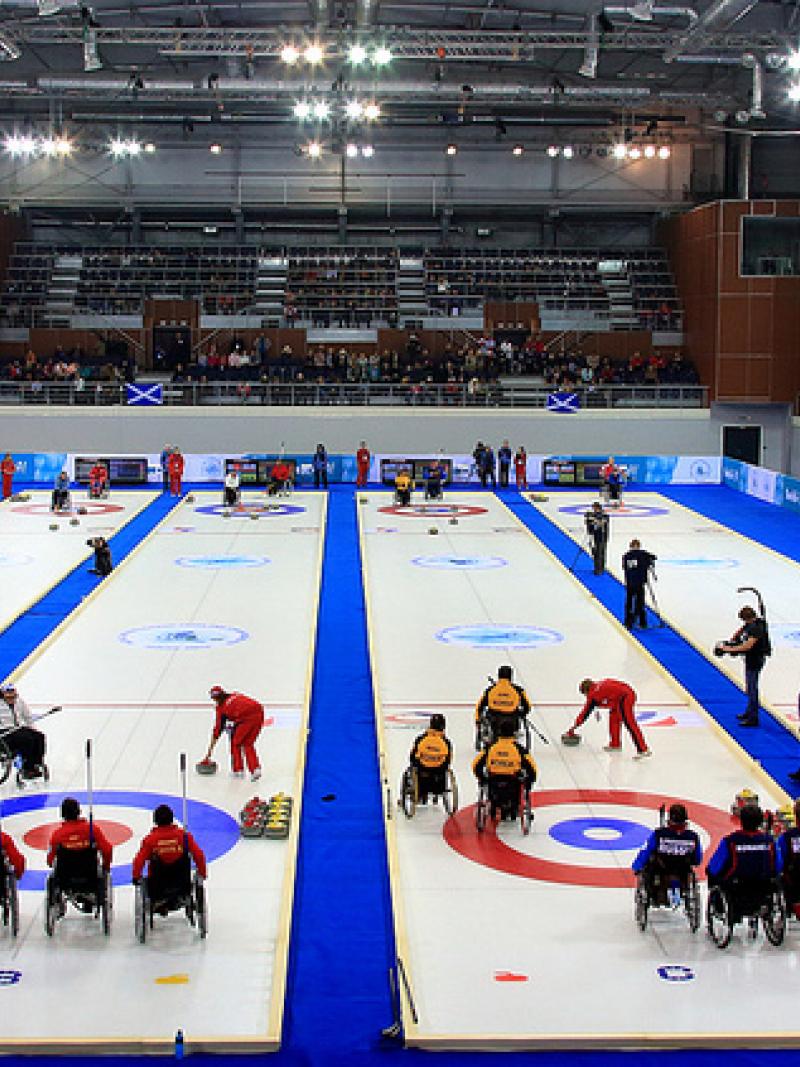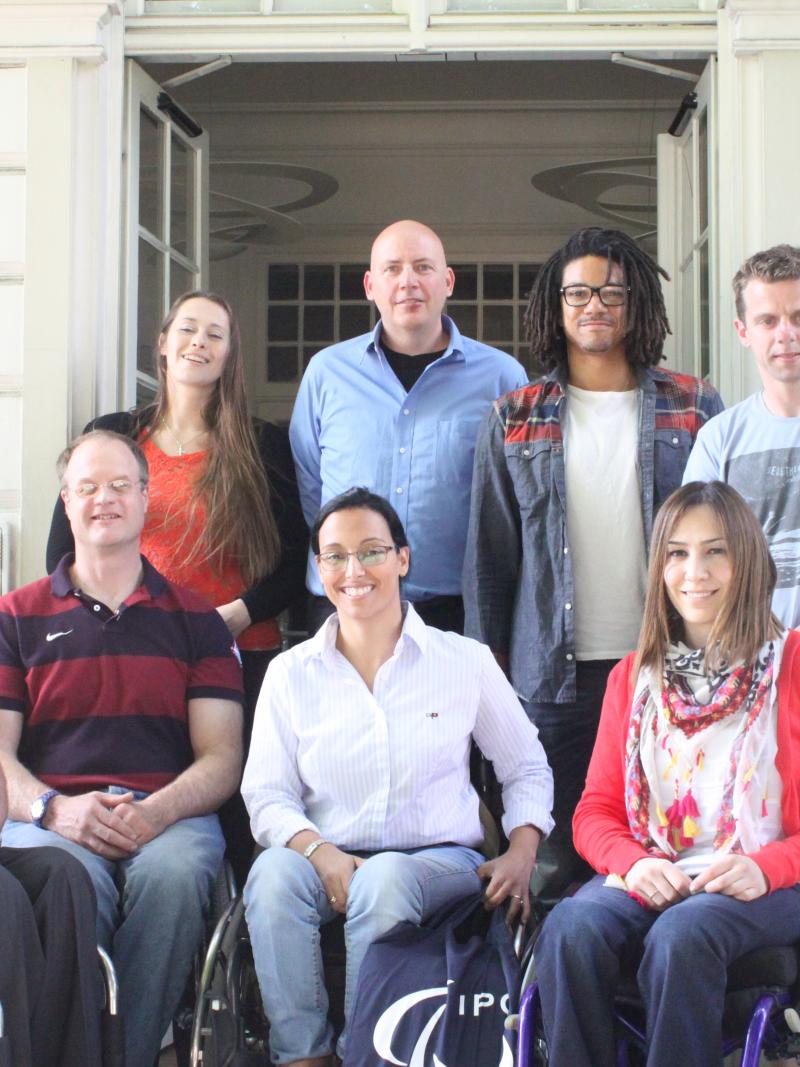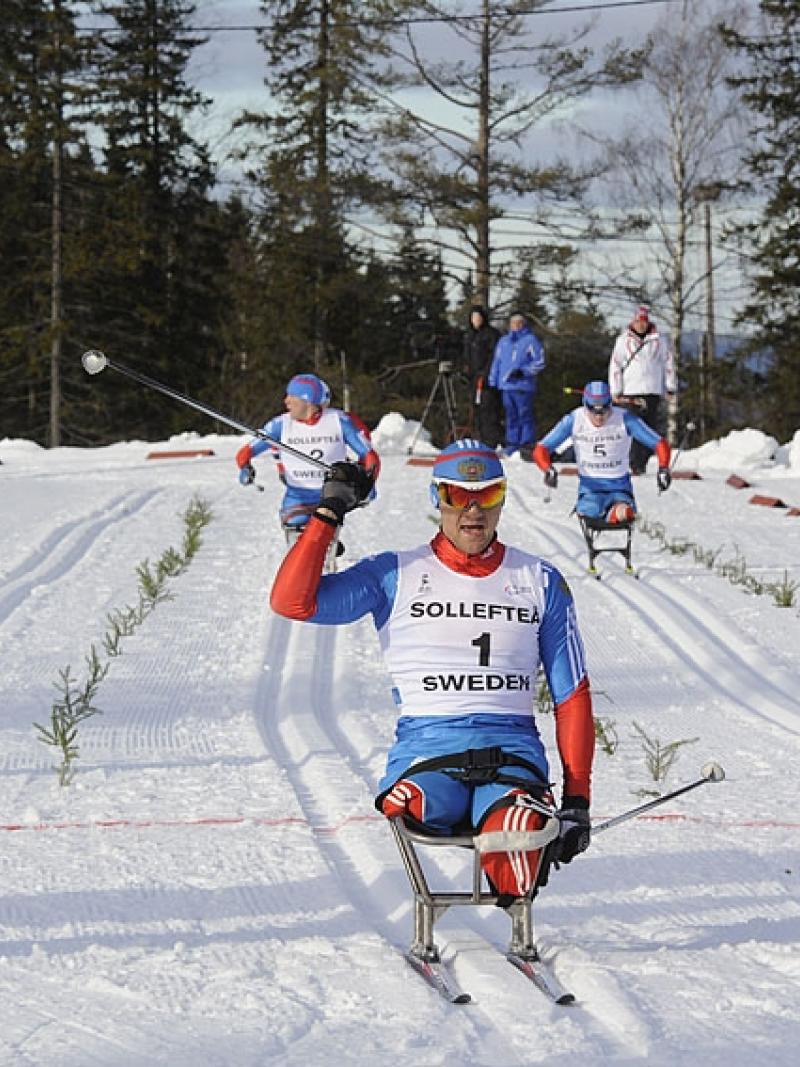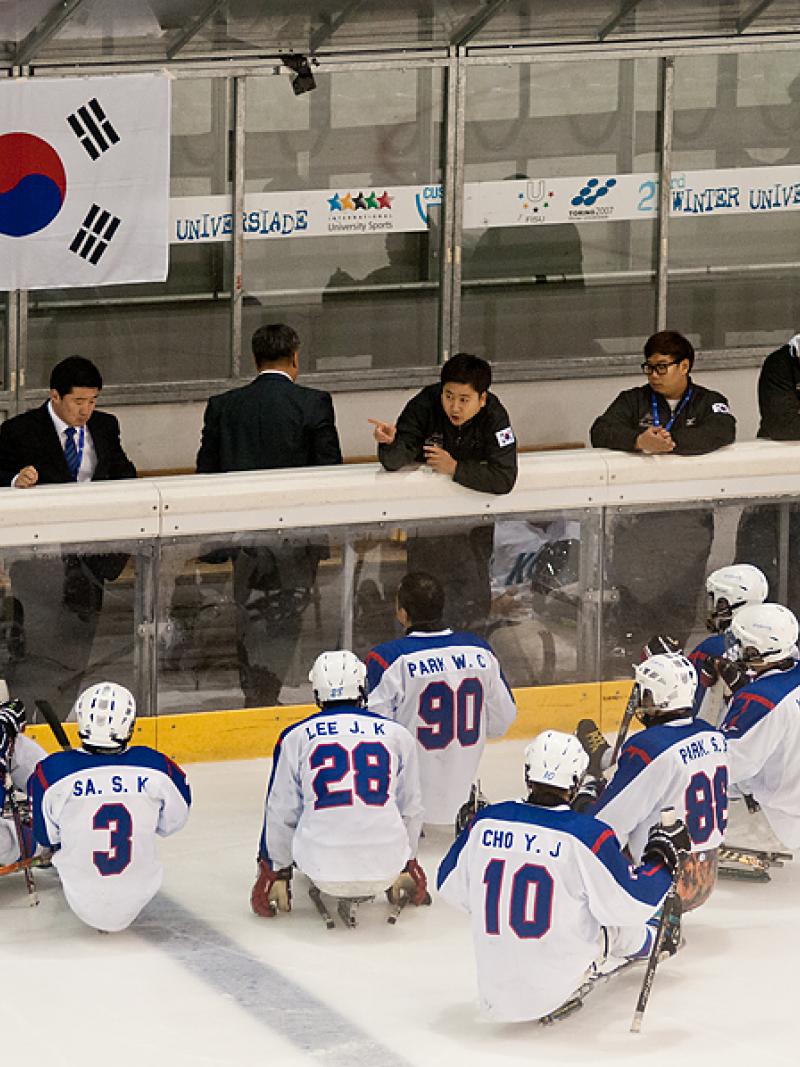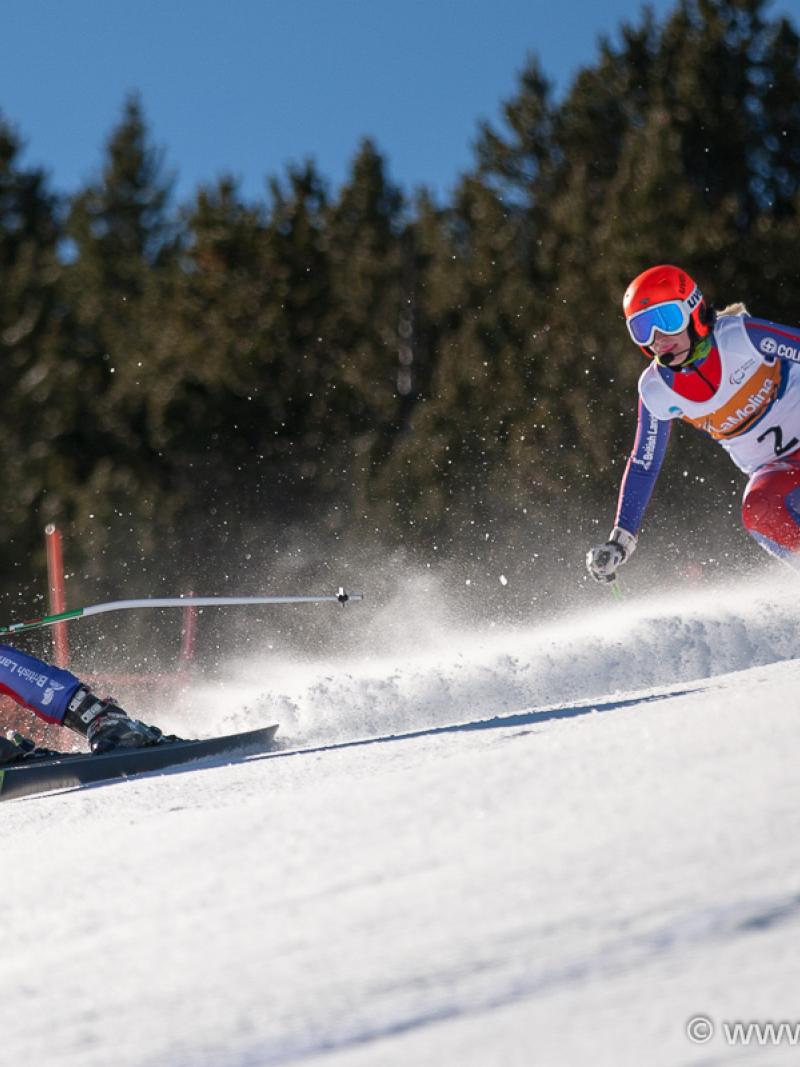Sochi 2014 setting Russia up for post-Games legacy
Find out how the Sochi 2014 Games will create a barrier-free environment, educate youth and enhance the volunteer movement in Russia. 30 Jan 2014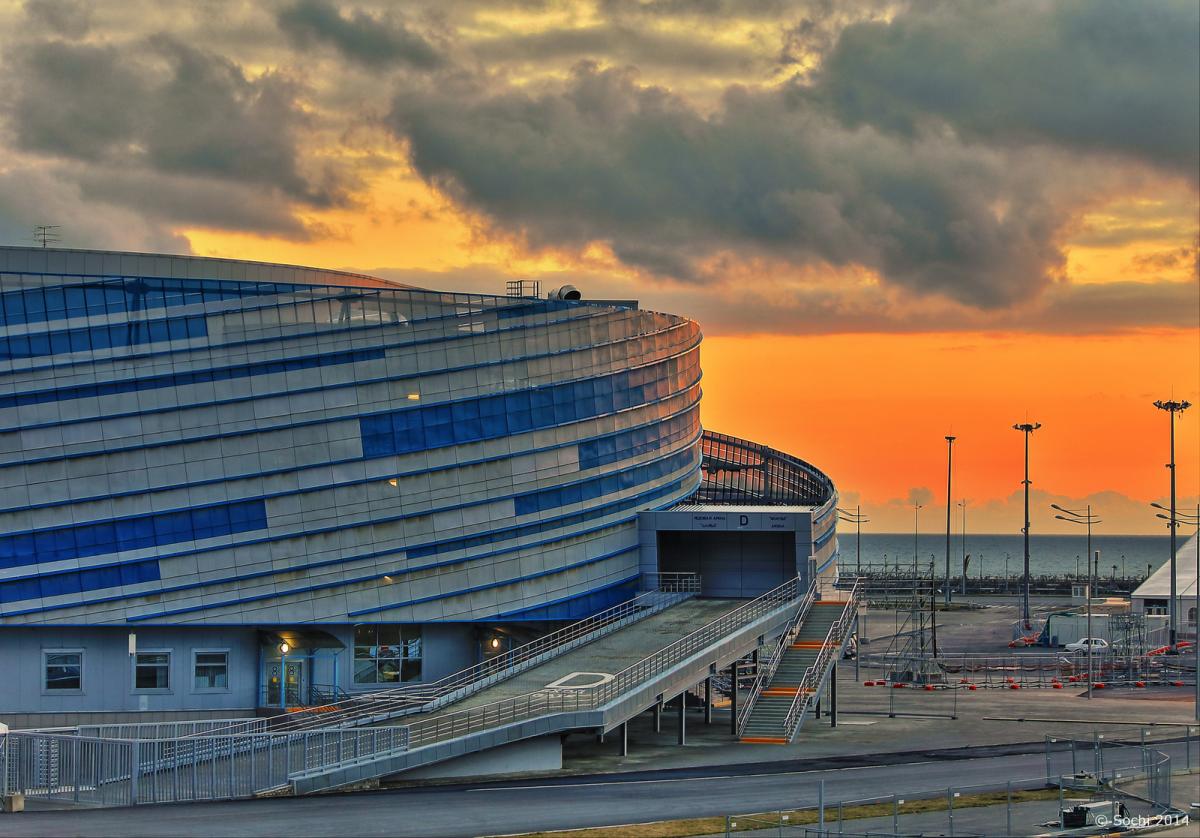
Shayba Arena in Sochi will host the ice sledge hockey events during the Paralympic Winter Games.
Almost all of the research participants were aware of the upcoming Winter Olympics (97 per cent) and Paralympic (93 per cent) Games in 2014 in Sochi. The vast majority (83 per cent) of Russians have a positive attitude towards the Games in Sochi.
The Olympic and Paralympic Winter Games are a global event, with the effect of the Games already being felt in the Sochi region and much more widely across Russia.
Through the preparation for the Games, Russia have benefitted from life changing-tangible and intangible legacies. The key elements of the intangible legacy have been the positive development of society's attitude toward people with an impairment. This can be credited to the sports on the Paralympic programme, the creation of a volunteer movement in Russia for the very first time, the development of green construction and the formation of an expert group of specialists in the management of mega-projects and sports events.
Previously, a regional summer resort that was known mainly only within Russia, Sochi has now become a year-round world-class sports, business and tourist centre. Thanks to the Games, an exceptional complex consisting of several ice rinks, ski and bobsleigh runs, jumps and four ski resorts with a total length of 150km of ski slopes and all the required related infrastructure has emerged in the country. More than 367km of roads and bridges were built. With a total capacity of 26,000 rooms, 40 new hotels have been constructed and 15 hotels have been renovated for the Games.
A whole range of key programs, initiatives and standards, which have spread across the country thanks to preparations for the Games, are an intangible legacy of Sochi 2014.
The Games have therefore become a catalyst for the development of a "green construction" industry in Russia. It involves the use of ecological building materials and renewable energy sources, the reduction, reuse and recycling of building waste, the reduction of greenhouse gas emissions and the efficient use of water and energy. The key Olympic venues are certified for complying with the international “green” construction standards BREEAM. The RIOU administrative building and the Olympic Park railway station became the first venues to receive BREEAM certificates assigning one of the highest standards.
Green construction
In March 2013, the 1st national standard for environmental construction GOST R 54694-2012 "Conformity assessment - Environmental requirements for real estate" was passed into law. It was created following joint efforts by the Russian Ministry of Natural Resources, the Russian Ministry of Regional Development and SC "Olympstroy." The standard was integrated into the core corporate green building standard at SC "Olympstroy" and was tested out at a range of Olympic venues. Today, the construction of facilities across the country will be conducted in accordance with these modern environmental requirements of this standard aimed at reducing the consumption of energy resources and reducing harmful effects on the environment.
Urban planning and barrier-free environment
Sochi 2014 set new standards for urban planning and construction. All sports venues and infrastructure were equipped to meet the needs of people with a disability. Approximately 1,800 buildings and facilities are included in the list of priority venues for the creation of a barrier-free environment, which was created by the Sochi city Administration. Around 200 Russian cities have adopted Sochi's experience in creating a barrier-free environment, which will help to integrate people with a disability into Russian society.
In preparation for the Games, the innovative project "Accessibility Map" has been successfully implemented, which allows people with disabilities to find a place within walking distance, where they can engage in Paralympic sports, and to receive information on nearby barrier-free environments. Sochi 2014 Volunteer Centres from 16 Russian regions are actively working on the “Accessibility Map.” To date, the map shows more than 14,600 facilities, each person can contribute to the content of the map and send information about sports clubs for people with an impairment and facilities with a barrier-free environment placed on the map.
The volunteer movement
One of the most important elements of the legacy of the Games in Sochi has become the development of a volunteer movement in Russia for the very first time. In total, 26 volunteer centres have been established in 14 regions of Russia, on the basis of which the selection and training of volunteers for the Games took place. By the end of 2012, around 2,800 projects involving volunteers of the Games were successfully implemented in the regions of Russia. According to international research, Russia have climbed to eighth place in the World Giving Index 2012, which measures the number of people involved in voluntary work (21 million people). The Sochi 2014 Organising Committee hopes that the action it has taken will encourage up to 25 million Russians to get involved in volunteering in the near future.
Sochi 2014 educational programmes
The Sochi 2014 Olympic Education System is one of the main innovations of the Sochi 2014 Organising Committee, creating an effective strategy for the training of international sports specialists. The Sochi 2014 Olympic Education System concept was adopted at a meeting of the Sochi 2014 Supervisory Board in October 2009 and approved by the IOC in December 2009.
The Olympic Education program is contributed to delivering of Olympic values, changing societal attitudes towards people with disabilities and helped create a culture encouraging environmental education and volunteer work.
The Sochi 2014 Olympic education system is comprised of three levels: popular, academic and executive. All Sochi 2014 educational and methodological materials, including video tutorials, presentations and computer programs are available on the official website of the Organising Committee for no cost.
Popular education provides basic knowledge on the history and philosophy of the Olympic and Paralympic Movements, Games staging, and activities undertaken by the Bidding and Organising Committees. Particular attention is paid to the 2014 Games in Sochi: the lead-up to the victory in Guatemala, the strategic vision of Sochi 2014, the characteristics of the project and the Legacy of the Games. According to the Ministry of Education of Russia, five million students across the country attended the series of extracurricular activities as of February 2014.
Another key step in the implementation of the Olympic education program was the "One school - one country" program. The aim of the Program was to familiarize school children with the traditions, culture, and history of over 53 countries participating in the Olympic and Paralympic Games through real-life communication with athletes and peers from other countries. Developing mutual understanding and cooperation between people from different countries during the preparations and staging of the Games in Sochi has broadened the worldview of students participating in the programme. In total, the "One school - one country" program was attended by over 50,000 students and teachers from all 73 regions.
National involvement
According to research conducted in April and May 2013 in 22 Russian cities by Nielsen (the world leader in consumer behavior research), the overall level of involvement and positive attitudes toward the Games in Sochi is high, and is increasing as the Games draw nearer.
Almost all of the research participants were aware of the upcoming Winter Olympics (97 per cent) and Paralympic (93 per cent) Games in 2014 in Sochi. The vast majority (83 per cent) of Russians have a positive attitude towards the Games in Sochi.
From an emotional point of view, the citizens of Russia are very positive about the Games in Sochi. The population reports feeling inspired, involved and proud, while negative statements are virtually absent.
Thanks to the Games, Russia has entered the top three most influential sports powers in 2012 and received the status of the leader of the sports world for the period 2013-2018, according to influential portal Sportcal. The largest sporting events to be held in Russia in the near future are: The 2015 European Luge Championships, the 2016 World Hockey Championships, the 2017 Bobsleigh and Skeleton World Championships, the 2018 FIFA World Cup and others will have a significant socio-economic impact, but the first to achieve this will be the 2014 Olympic and Paralympic Games.




-Mark-Kolbe-Getty.jpg)
